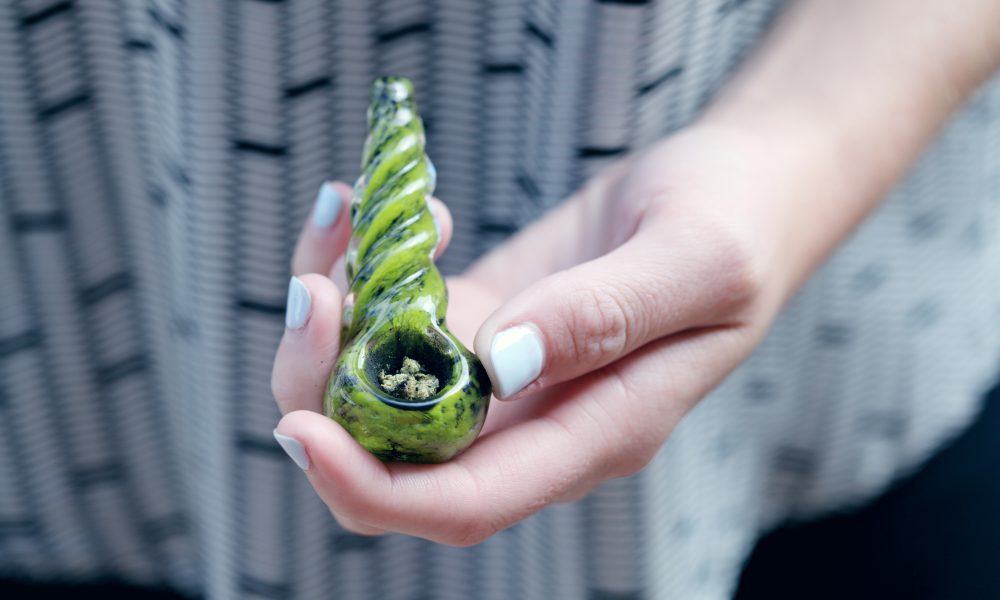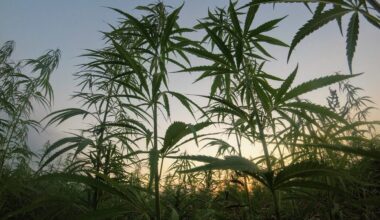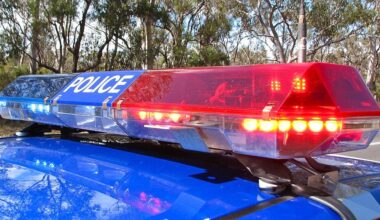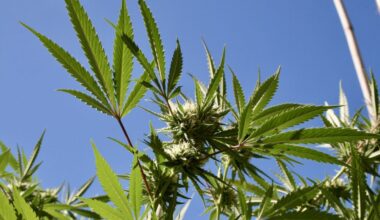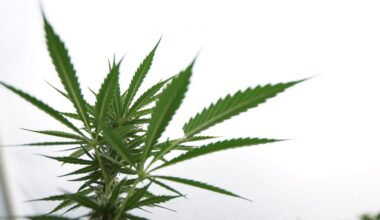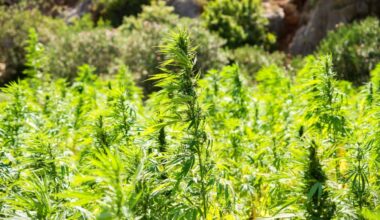Cannabis consumption lounges, where adults 21 and older can openly use marijuana products in a social setting, are on track to open in Nevada by the end of this year following approval of regulations by the state’s Cannabis Compliance Board on Tuesday.
The lounges are widely seen as a boon for the state’s massive tourist industry, as well as for the tourists themselves. Since the state first launched legal sales in 2017—and even as Las Vegas’s cannabis retailers have become popular attractions—consuming marijuana anywhere outside a private home has generally remained illegal.
Today, the CCB voted unanimously to approve regulations surrounding the licensing and operation of cannabis consumption lounges. pic.twitter.com/1O3R3cXIsr
— Nevada Cannabis Compliance Board (@NevadaCCB) June 28, 2022
State lawmakers passed a bill last year legalizing the establishments and creating two categories of licenses: one for “retail cannabis consumption lounges,” under which existing retailers will be able to sell products to be consumed on-site, and another for “independent cannabis consumption lounges” that will open as standalone lounges and sell single-serving and ready-to-consume products.
After regulators unanimously approved the new rules at a board meeting Tuesday, Gov. Steve Sisolak (D), who supports the move, tweeted: “In Nevada, we’ve prioritized the cannabis industry while protecting Nevadans AND diversifying the economy.”
In Nevada, we’ve prioritized innovative policies to expand the cannabis industry while protecting Nevadans AND diversifying our economy.https://t.co/wZ96vdyg98
— Steve Sisolak (@SteveSisolak) June 28, 2022
While some other states have allowances for social consumption, Tyler Klimas, executive director of Nevada’s Cannabis Control Board, told The Nevada Independent that he believes the state’s new rules are the most robust. Nevada’s lounges, he noted, will operate more like bars by selling single-use products rather than requiring customers to bring their own cannabis.
The law could also allow businesses that couple cannabis with yoga, serve infused food, offer THC-aided massage therapy or incorporate marijuana in other ways.
Sisolak championed Nevada’s lounge law in a 4/20 op-ed for Marijuana Moment this year, writing: “The idea isn’t new, but no one is doing it like we are in Nevada.”
“While most of the consumption lounges in other states don’t offer food, beverages or other entertainment options,” he said, “Nevada’s lounges will be a one-stop entertainment shop to create jobs, grow the industry and boost our economy.”
Per the newly approved regulations, consumption must be hidden from public view. Smoking and vaping must take place in a separate room of the lounge or be prohibited entirely. Single-use or ready-to-consume cannabis products can’t be brought off-site. And businesses must provide water to every guest free of charge.
The lounges will also be cannabis-only: No alcohol, tobacco or nicotine products can be sold.
Other safety-related regulations require lounges to establish plans to limit cannabis-impaired driving and minimize workers’ exposure to secondhand smoke. Guns are prohibited, surveillance is required and procedures must be in place to reduce and respond to potentially violent or harassing behavior.
Single-use cannabis products are limited to no more than 3.5 grams of usable cannabis under the regulations, with “extracted inhalable cannabis products” (such as vaping or dabbing products) limited to 300 milligrams of THC. All single-use products with more than 1 gram of usable cannabis, and all extracted inhalables, must carry written potency warnings.
Individual servings of ready-to-consume edible products are capped at 10 milligrams THC, a fairly standard amount in states that have legalized cannabis for adult use.
Topicals, meanwhile, are limited to 400 milligrams of THC. Transdermal patches and all other cannabis products can have no more than 100 milligrams THC and must carry a written warning if they have more than 10 milligrams.
While the new rules will apply across Nevada, the law passed by the legislature last year legalizing the lounges allows local governments to set “more restrictive” regulations.
Regulators said they expect to open the first round of licensing for consumption lounges this fall. Ahead of that, the control board says it intends to roll out “tools and resources including worksheets, video tutorials and live webinars in order to ensure interested parties have access to the same information and are able to successfully submit an application.”
Many proponents of legalizing consumption lounges framed the new revenue stream as a way to promote social equity in Nevada’s billion-dollar-a-year cannabis industry. Of the 20 new licenses for standalone consumption lounges, 10 are reserved for social equity applicants, who are defined as people living in historically disadvantaged areas and either were themselves convicted or are the family member of someone convicted for a nonviolent cannabis crime.
Meanwhile, 40 to 45 licenses are slated to go to existing marijuana retailers.
“It has to be viewed as the first step. It’s not going to be perfect,” Klimas, of the Cannabis Control Board, told The Nevada Independent before Tuesday’s vote. “If we’re trying to address the errors of drug policy over the last decades, all of that is not going to be satisfied by issuing 10 consumption lounge licenses to social equity applicants.”
Sisolak wrote in Marijuana Moment in April that by “pledging to improve equity every step of the way, we will measure our progress and follow through on our commitments.”
Locally, the Las Vegas City Council approved an ordinance allowing for social consumption sites within city limits in 2019. The same year, Alaska became the first state to enact regulations that provide for the on-site use option at dispensaries. Colorado followed suit with legislation approved that legalized cannabis “tasting rooms” and “marijuana hospitality establishments” where adults could freely use cannabis. Social consumption sites are also provided for in New York’s marijuana legalization law.
In California, a culture of underground or members-only cannabis cafés has long existed, although only a handful are licensed and open to the general public. But despite some obstacles, such as a ban on indoor smoking, the businesses are becoming increasingly popular.
Back in Nevada, the state ACLU chapter is suing state officials for refusing to reschedule marijuana under state law despite voter-approved legalization, a situation that the group says is allowing police to exploit a “loophole” to continue to arrest people over cannabis.
Photo by Sharon McCutcheon on Unsplash.
Medical Disclaimer:
The information provided in these blog posts is intended for general informational and educational purposes only. It is not a substitute for professional medical advice, diagnosis, or treatment. Always seek the advice of your physician or other qualified healthcare provider with any questions you may have regarding a medical condition. The use of any information provided in these blog posts is solely at your own risk. The authors and the website do not recommend or endorse any specific products, treatments, or procedures mentioned. Reliance on any information in these blog posts is solely at your own discretion.
